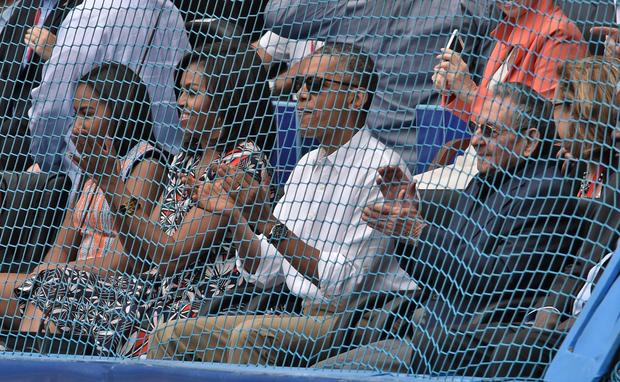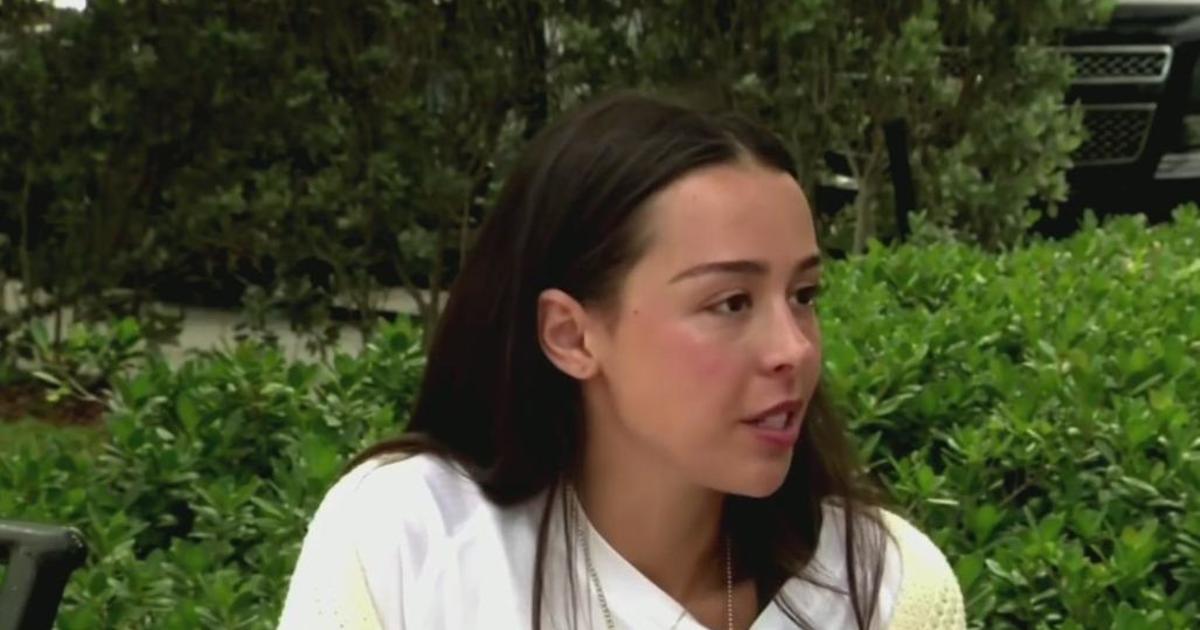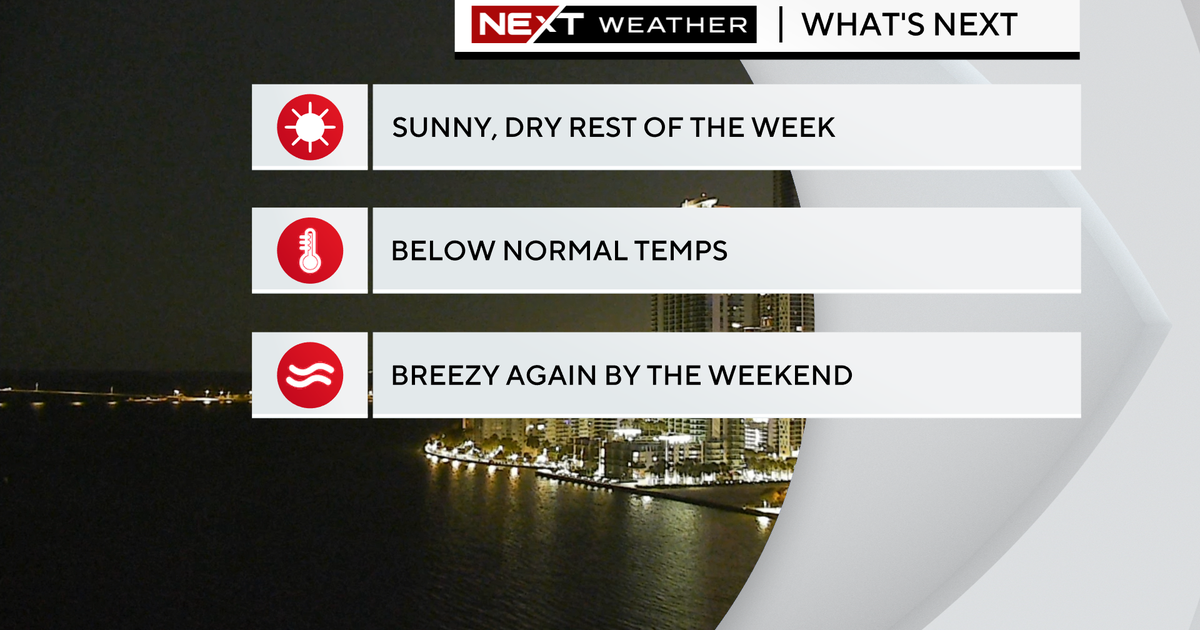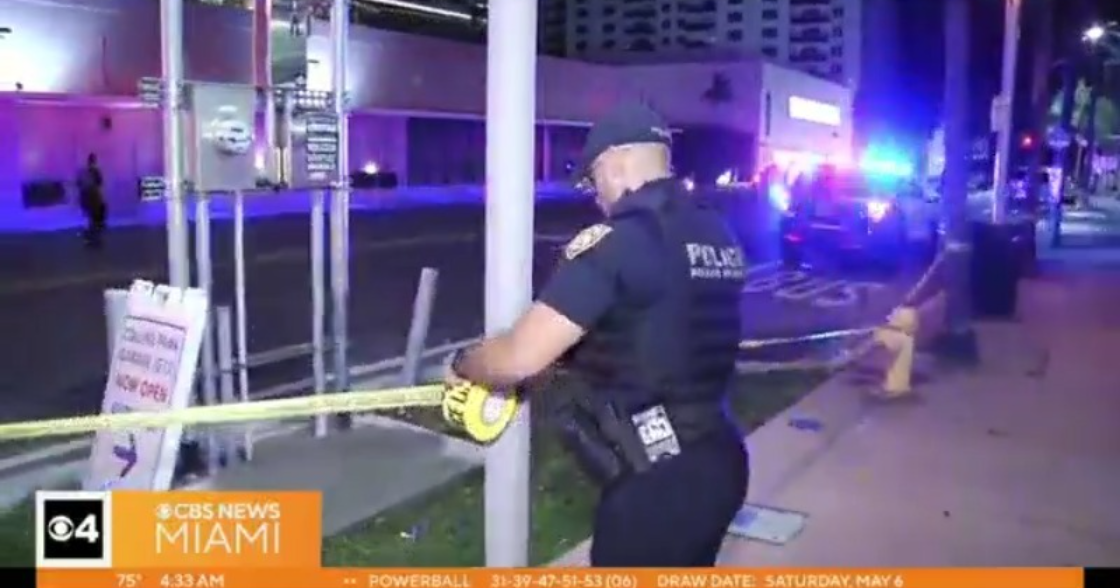Obama Calls On Burying "Last Remnant" Of Cold War
Follow CBSMIAMI.COM: Facebook | Twitter
HAVANA (CBSMiami/AP) — President Barack Obama cast a spotlight on political repression and economic hardships in Cuba before he took off on AirForce One on Tuesday.
The president opened his day with a few words for the victims of the Brussels terror attacks that left nearly 40 dead and more than 130 injured.
"The thoughts and the prayers of the American people are with the people of Belgium," said Obama. "We will do anything necessary in supporting our ally Belgium."
Obama went on, "This is another reminder that the world must unite."
With that, Obama went on to address the Cuban people at the Grand Theater of Havana.
"I have come here to bury the last remnants of the Cold War in the Americas. I have come here to extend the hand of friendship to the Cuban people," said Obama.
Transcript: President Obama's Remarks To The Cuban People
"For all of our differences, the Cuban and American people share a sense of common values in our daily lives," said Obama. "But we cannot and should not ignore the very real differences that we have about how we organize or governments, our economies and our societies."
The president's rationale for coming to Havana was grounded in the notion that direct interaction with Cubans would do more to empower them and bring about change than decades of isolation ever did.
"We have a clear monument to what the Cuban people can build. It's called Miami," said Obama. "Here in Havana we see that same talent."
Obama's speech Tuesday offered the best chance to make his case for the U.S. and Cuba putting the vestiges of the Cold War behind them as well as pushing for the lifting of the embargo.
"As president of the United States, I have called on our Congress to lift the embargo," said Obama. "It is an outdated burden on the Cuban people. It's a burden on the Americans who want to work and do business to invest here in Cuba. It's time to lift the embargo. But even if we lift the embargo tomorrow, Cubans would not be able to realize their potential without change here in Cuba."
He went on, "What changes come will depend on the Cuban people."
His meeting with Cuban dissidents after his speech was a prerequisite for the trip, the White House said, pushing back on suggestions that Obama is rewarding a system whose limits on dissent run counter to American values.
Related : CANF Releases List Of Political Prisoners In Cuba
"I believe citizens should be free to speak their minds without fear, to organize and to criticize their government and to process peacefully and that the rule of law should not include arbitrary detention to people who exercise their rights," said Obama.
To Cuban President Raul Castro, watching from a balcony, he added, "I believe my visit here demonstrates you do not need to fear a threat from the United States."
He went on, "You need not fear the different voices of the Cuban people and their capacity to speak and assemble and vote for their leaders."
Obama's address was carried live on Cuba's tightly controlled state television, offering him a rare, unfettered opportunity to speak directly to the country's citizens about his vision.
Some of the Cubans who tuned in to watch from home.
"I think the government is open to change but without pressure," said 44-year old Alexi.
On the streets of Havana many Cubans who caught the president's speech were jubilant.
"We agree with everything he said in the speech," said Barbara Ugarte, 45, who owns a gift shop. Omardy Isaac, a 43-year-old who works in the same shop, added that "Cubans need all of their rights and I am in favor of democracy."
"The most important thing is to recover family and those who have faith in Cuba and to forget about the extremes that we've had," said one Cuban on the street.
"This draws our people together. This is the moment we've all been waiting for. We have to elave behind the old ideas and carry on as brothers," said another Cuban.
But some were cautiously optimistic.
"It doesn't just depend on the Cubans. It also depends on the Americans," said another Cuban man.
Another change the president is pushing for in Cuba is more internet access.
"It's an advance for the Cuban people what the president said, " said one hot spot user on the island. "It'll be good for the development of the country and the future."
Obama's address opened a whirlwind final day on the island that included a meeting with Cuban dissidents and a baseball game featuring the country's beloved national team — events made possible by the normalization of U.S. and Cuban relations 15 months ago. It had been nearly 90 years since a sitting U.S. president visited the island.
Click here to view pictures of the president's visit.
It was a remarkable sight for Cubans to see the American and Cuban presidents sitting side by side at a baseball game. The crowd reacted with thunderous applause and chants of "Raul" as the leaders arrived to settle into their seats in the VIP section behind home plate.
Despite the enthusiasm in both the U.S. and Cuba about a new relationship between former foes, Obama acknowledged deep differences persist, including on human rights and democracy. With prominent members of Cuban society looking on, he called for citizens to be able to "speak their minds without fear" and pick their leaders in free and fair elections.
The president was cheered when he reiterated his call for the U.S. Congress to lift the economic embargo on Cuba, calling it an "outdated burden on the Cuban people."
The embargo is loathed on the island. During a joint appearance with Obama on Monday, Castro called it "the most important obstacle" to Cuba's economic growth."
Related: Obama: "The Embargo Is Going To End."
Throughout his presidency, Obama has sought to refocus U.S. foreign policy on areas like Latin America that have received less attention than the turmoil in the Middle East and the terrorism emanating from the region. The White House hopes that restoring ties with Cuba will benefit U.S. relations with other countries in Latin America, which have long bristled at Washington's freeze with Havana.
Critics of Obama's policy say he's given up too much with too little in return from Cuba, particularly on human rights. White House officials pointed to the president's meeting with about a dozen dissidents Tuesday as a sign of his focus on Cuban repression, saying that allowing the gathering was a prerequisite for his entire visit.
In brief comments ahead of the private meeting, Obama said his purpose was to ensure that the voices and concerns of the Cuban people can help "shape U.S. policy" toward the island.
"There are people here who have been detained — some in the past, some very recently," Obama said. "It requires oftentimes great courage to be active in civic life here in Cuba."
Among the dissidents meeting with Obama were activists, an attorney, a journalist and Berta Soler of the Ladies in White, a group that organizes weekly demonstrations that regularly lead to short detentions. Though Cuba has been criticized for that practice, the long prison sentences handed down in the past have diminished dramatically in recent years.
"All of the individuals around this table have shown extraordinary courage. They have spoken out on behalf of the issues that they care deeply about. Some of them represent specific constituencies inside of Cuba. Some of them have broader concerns regarding democracy, the ability to speak freely or worship freely or assemble or are advocating on behalf of democratic practices here in Cuba," said Obama.
The issue of political prisoners is hugely important to Cuban-Americans and to the international community. Yet most people on the island are more concerned about the shortage of goods and their own struggles with local bureaucracy.
As Obama pushed for democracy, he pointed to America's own turbulent history. He held up the current presidential election as an example of how change can come.
"You have two Cuban-Americans in the Republican Party running against the legacy of a black man who is president while arguing that they're the best person to beat the Democratic nominee, who will either be a woman or a democratic socialist," Obama said.
Republicans Ted Cruz and Marco Rubio, both of Cuban descent, have sought the GOP nomination, though Rubio recently ended his campaign. The Democratic contest is between Hillary Clinton and Bernie Sanders, a self-described democratic socialist.
Click here to read more about U.S.- Cuba Relations.
(TM and © Copyright 2016 CBS Radio Inc. and its relevant subsidiaries. CBS RADIO and EYE Logo TM and Copyright 2016 CBS Broadcasting Inc. Used under license. All Rights Reserved. This material may not be published, broadcast, rewritten, or redistributed. The Associated Press contributed to this report.)




